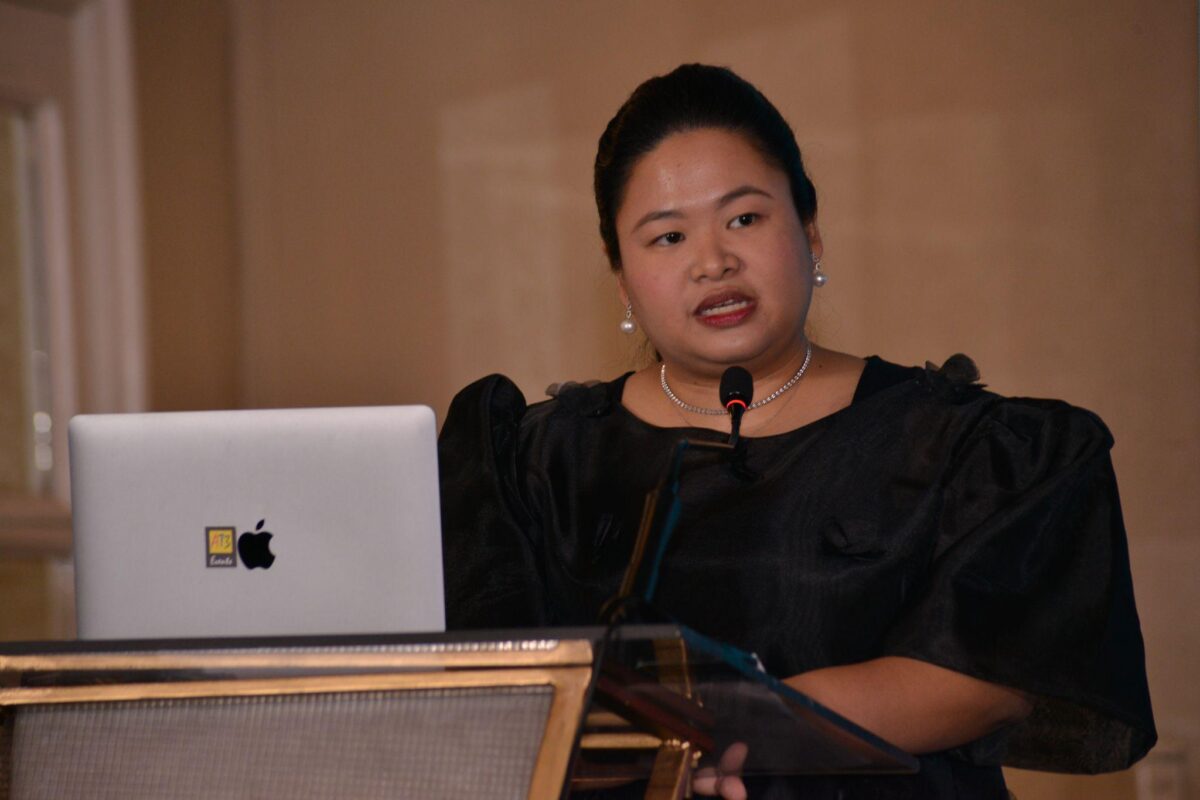Congresswoman Natasha Co, Representative of the BHW Partylist, emphasized the importance of strengthening collaboration between the Department of Health (DOH) and the Department of Education (DepEd) to increase HPV vaccination rates in schools. “Starting next year, this collaboration will enable us to ensure that we reach more young Filipinas who need protection,” Co said. She highlighted that schools are ideal venues for health programs due to their wide reach and accessibility to students, parents, and communities.

Hon. Natasha Co, Partylist Representative of BHW Partylist, emphasizes the importance of strategic budget allocation for health and highlights the crucial role of synergy and collaboration in ensuring the successful implementation of health programs.
This statement was shared during the recent health forum, Together for Health: The Progress Made and What More Needs to Be Done for Cervical Cancer Elimination, held in line with the Cervical Cancer Elimination Day of Action. The forum brought together stakeholders to highlight efforts in combating cervical cancer, a preventable disease that claims the lives of 12 Filipino women daily.
Despite being the second most common cancer among women in the Philippines, cervical cancer is both preventable and treatable through vaccination, screening, and timely care. The World Health Organization (WHO) has outlined a roadmap for eliminating cervical cancer globally, aiming to reduce its incidence rate to fewer than 4 cases per 100,000 women. The strategy focuses on achieving the 90–70–90 benchmarks by 2030:
- 90% of girls fully vaccinated against HPV by age 15.
- 70% of women undergoing high-performance screening by ages 35 and 45.
- 90% of women with pre-cancer or invasive cancer receiving timely and effective treatment.
DepEd’s Role in HPV VaccinationDepEd Assistant Secretary Dexter Galban reaffirmed the education department’s commitment to student well-being through its school-based immunization programs. “Through our vaccination program, we aim to protect learners and their families, regardless of their location—be it in the city or the province,” Galban said.
Asec. Dexter Galban emphasizes the importance of school-based immunization in protecting girls from cervical cancer
As part of its efforts, DepEd launched the Bakuna Eskwela campaign to promote awareness about HPV vaccination and encourage greater participation. “We call on all families to support Bakuna Eskwela to ensure that learners, especially young women, are protected from cervical cancer,” Galban urged.
DepEd also integrates the Child and Adolescent Reproductive Health Program with the Wash in Schools Program, providing accessible health services at over 1,000 school-based centers. Galban noted that these initiatives empower students and families to make informed health decisions.
Addressing Vaccine Hesitancy
For 2024, the government has allocated ₱47 billion for health programs, including ₱44.24 billion for drugs, medicines, and vaccines. Congresswoman Co underscored the importance of ensuring these resources are properly utilized. “Oversight and coordinated efforts are crucial to address gaps and ensure that vaccines and medicines reach those who need them most,” she said.
At the same time, Congresswoman Co stressed the importance of combating vaccine hesitancy, which was exacerbated during the COVID-19 pandemic. “We must educate families about the life-saving benefits of the HPV vaccine, particularly its role in significantly reducing the risk of cervical cancer,” she said.
Co also called for a multi-agency approach to expand the program’s reach, including engaging the Department of the Interior and Local Government (DILG). “By partnering with DILG, we can tap into community resources to spread awareness and increase vaccination coverage,” she said.
HPV Self-Sampling for Screening
In addition to vaccination, innovative solutions like HPV self-sampling provide a complementary approach to cervical cancer prevention. Self-sampling allows women to collect their own samples in a private and comfortable setting, helping overcome barriers like stigma, discomfort, and lack of access to healthcare facilities.
Self-sampling not only makes cervical cancer screening more accessible but also empowers women to take control of their health. This evidence-based intervention supports the World Health Organization’s (WHO) 2030 target of 70% screening coverage and strengthens the country’s efforts to eliminate cervical cancer.
By combining proactive vaccination initiatives, innovative screening methods, and strong government collaboration, the Philippines is making meaningful progress toward eliminating cervical cancer. These efforts aim to protect future generations from this preventable disease while addressing the WHO’s global targets for prevention, screening, and treatment. ###
ADVT.
This article is brought to you by Cervical Cancer Patient.
Read more stories here:
No need to import: Tender-Fresh Duck Meat is now locally produced
Pinoys urged to practice responsible spending during Christmas season
Turn opportunities into reality: How a multipurpose loan can help you seize the moment